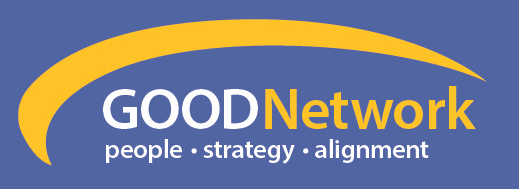What Happens When an Engineer Practices OD: How to Analyze the Organization as a System
Friday, August 11, 2017
Program Description
Why do many Organization Development (OD) interventions fail to achieve their desired results?
Often, interventions fail to achieve results because they failed to recognize the larger systemic influences at work. An organization is a complex, adaptive system whose performance is created by the many interactions of its different parts. This fact, along with its adaptive nature (when you push, it pushes back) means that analysis and intervention based on breaking the organization into little pieces and focusing on solving those problems will often fail. Sadly, it is often exactly this type of solution that we are driven to by our clients or organizational stovepipes.
Following the tragic Space Shuttle Columbia accident, Phillip was asked to lead the cultural and organizational changes required for return to flight. This assignment started an engineer down a path of learning and discovery, ultimately culminating in the creation of an OD group at Kennedy Space Center. Along the way, he discovered how viewing the organization as a system could lead to better effectiveness of OD initiatives.
During this session, Phillip will share with you his journey and introduce you to tools from his engineering background which can be used to better understand organizations and design interventions.
This program qualifies for 2.5 SHRM professional development credits (PDCs) through our partnership with UCF.

Learning objectives:
- Participants will be able to describe the characteristics of a complex adaptive system in order to create a systems model of their own organization.
- Participants will be able to recognize the interactions and feedback between organizational components in order to better asses and diagnose organizational issues.
- Participants will able to use causal loop diagrams to analyze organizational issues in order to better describe the systemic interactions and facilitate better discussion and buy-in from clients.
Speaker Bio
 Dr. Phillip Meade has led teams and organizations for 25 years, serving at various levels of management. Following the Space Shuttle Columbia accident, he developed a plan for the organizational and cultural changes necessary for return to flight, employing innovative techniques to align organizational systems, processes and leadership behaviors to drive sustainable change. Dr. Meade developed the strategy and led the implementation of an integrated and comprehensive framework for change management, and under his leadership the organizational and cultural changes instituted were recognized as the benchmark for culture change.
Dr. Phillip Meade has led teams and organizations for 25 years, serving at various levels of management. Following the Space Shuttle Columbia accident, he developed a plan for the organizational and cultural changes necessary for return to flight, employing innovative techniques to align organizational systems, processes and leadership behaviors to drive sustainable change. Dr. Meade developed the strategy and led the implementation of an integrated and comprehensive framework for change management, and under his leadership the organizational and cultural changes instituted were recognized as the benchmark for culture change.
Dr. Meade is also the founder and owner of Xodus Business & Technology Solutions, a successful consulting company focused on maximizing organizational performance. He has provided consulting and training services for clients across both the public and private sectors, focusing on change management, systems thinking, organizational improvement, and strategic planning.
Dr. Meade has a B.S. in Electrical Engineering, an M.S. in Engineering Management and a Ph.D. in Industrial Engineering. His dissertation research focused on using chaos and complexity theories to develop a strategic framework for applying product strategy to high-tech companies.
Agenda

 Greater Orlando Organization Development Network
Greater Orlando Organization Development Network